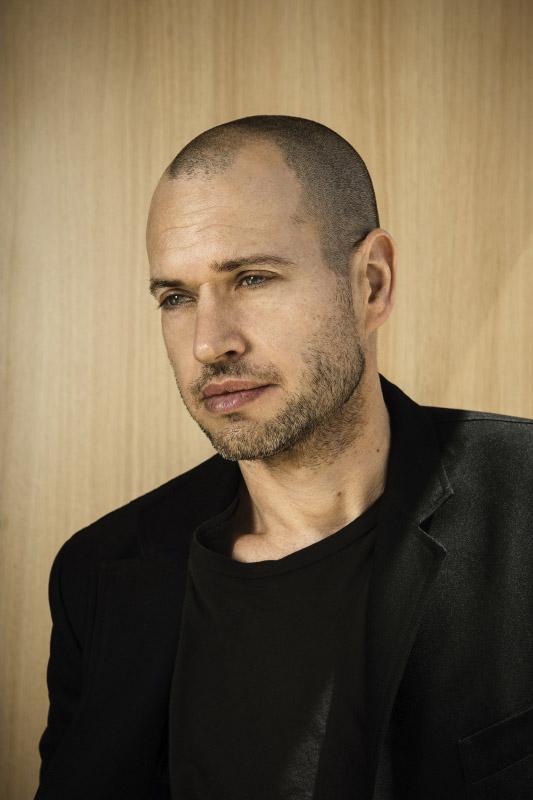Retakes: Nadav Lapid
“My personal goal is to open the breaches in the walls of our society, of our certainties, to try to give rise to doubts, to bring to light their complexity and their political consequences.”
Nadav Lapid
Israéliens, Palestiniens. Les cinéastes témoignent
Janine Halbreich-Euvrard & Carol Shyman
Riveneuve éditions – 2015
Nadav Lapid was born in 1975 in Israel, “a strange country in the Middle East”* that has never been far from the headlines since it became a state in 1948. Being born in this country conditions you to have a peculiar view of your society and of the world. Hailing from a family of artists, the young Nadav spent time in Paris, like Yoab, the character in Emile’s Girlfriend, where he immersed himself in films and tried vainly to get into La Fémis. Eventually, he trained at the prestigious Sam Spiegel school in Jerusalem where he made two short films that feature in this programme.
Lapid is a leading figure of a new generation of Isreali filmmakers who have emerged in the last few years, including Ari Folman, Keren Yedaya, Eran Kolirin, Samuel Maoz, Shlomo and Ronit Elkabetz, to name only the most well known in France. Incidentally, through an elaborate system of coproduction, the French Centre national de cinémais not entirely unfamiliar with this type of process.Like most of his colleagues, Lapid takes a critical stance towards his country, but he is also a unique and complex filmmaker who does not hesitate to emphasize the ambiguity, even unpleasantness, of his characters. Whether it is a braggart obnoxiously hitting on his lost pal’s girlfriend, a photographer pushing couples to separate or a school teacher whose attitude is inappropriate for neo-liberal society, we never find ourselves in established, predictable situations. The playboy of Tel Aviv refuses to take Delphine, a French girl, to the Yad Vashem Memorial because it is located in Jerusalem, the city of religions and conflicts. Delphine, for her part, works on the Shoah, though her family supported Pétain. His characters are shot through with duality, ambiguity and double-dealing. Lapid asserts that his country, after a long period of “socialism – not simply from an economic perspective but also with respect to values –, became an ultra-capitalist country”*. And while he sometimes refers to Don Quixote in his interviews, he has not lost the will to dispassionately and lucidly denounce this state of affairs. As he regularly says, he wants to capture the flavor of the times yet still go against them, knowing he is a part of them. His first feature film, Policeman, from 2011, was in tune with the powerful social movements that opposed the rollback of the socialist safety net and took to the streets of Israeli cities. Initially, the film was restricted to those over eighteen. For Lapid, “from a dramaturgical perspective, the Israeli-Palestinian conflict is like one of those experimental films that seem to never end but which, dramatically, should have been over a long time ago”*. In 2004, he made Road, a completely transgressive and incredibly rich short film. And in fact, studying it shot for shot would help immeasurably in understanding the conflict. Halfway through Diary of a Marriage Photographer, the camera zooms in on a minaret evident in the distance despite the groom’s specific request that the mosque not be visible. Amidst discussions of the torments of married life, it is a reminder of Israel’s sociological and political reality. Just a few months later, the Netanyahu government began the process of transforming the fundamental law and relegating the country’s Arab minority, which represents approximately 20% of the population, even further. In the fall of 2018, despite having stated in an interview with Cahiers du cinémain March 2012 that “I don’t really feel connected to Israeli cinema”, he and a number of intellectuals and artists signed a petition entitled “We reject the censorship of Isreali films” at a time when the government wanted to introduce a clause relating to “loyalty” in production contracts. Subsequently, it appears that the Netanyahu government has backed off, but the position of Israeli cinema in the country’s current political climate remains delicate. In addition to his political and sociological engagement, Lapid delves into souls, he observes the behavior and contradictions of characters who by no means have their heads in the clouds, but are firmly anchored in reality.
This year Nadav Lapid’s new feature film should be hitting screens. Its title, Synonyms, refers to a the type of dictionary that a young Israeli, once again named Yoav, carries with him while he is in France. For all we know, the character might be asking what it means to belong to a country. Let’s assume that for Lapid, there is a country called “Cinema”, a country that he loves and regularly questions, as in Lama? (Why?), and that its citizens are international, and for some perhaps even “internationalist”.
We’ll leave you with another quotation from a filmmaker whom we are proud to welcome and present at the Festival:
“Of all the arts, film is perhaps the most connected to society, reality and life in general. It is the reflection of what happens around it.”*
* Quotations are from various interviews with Nadav Lapid.








